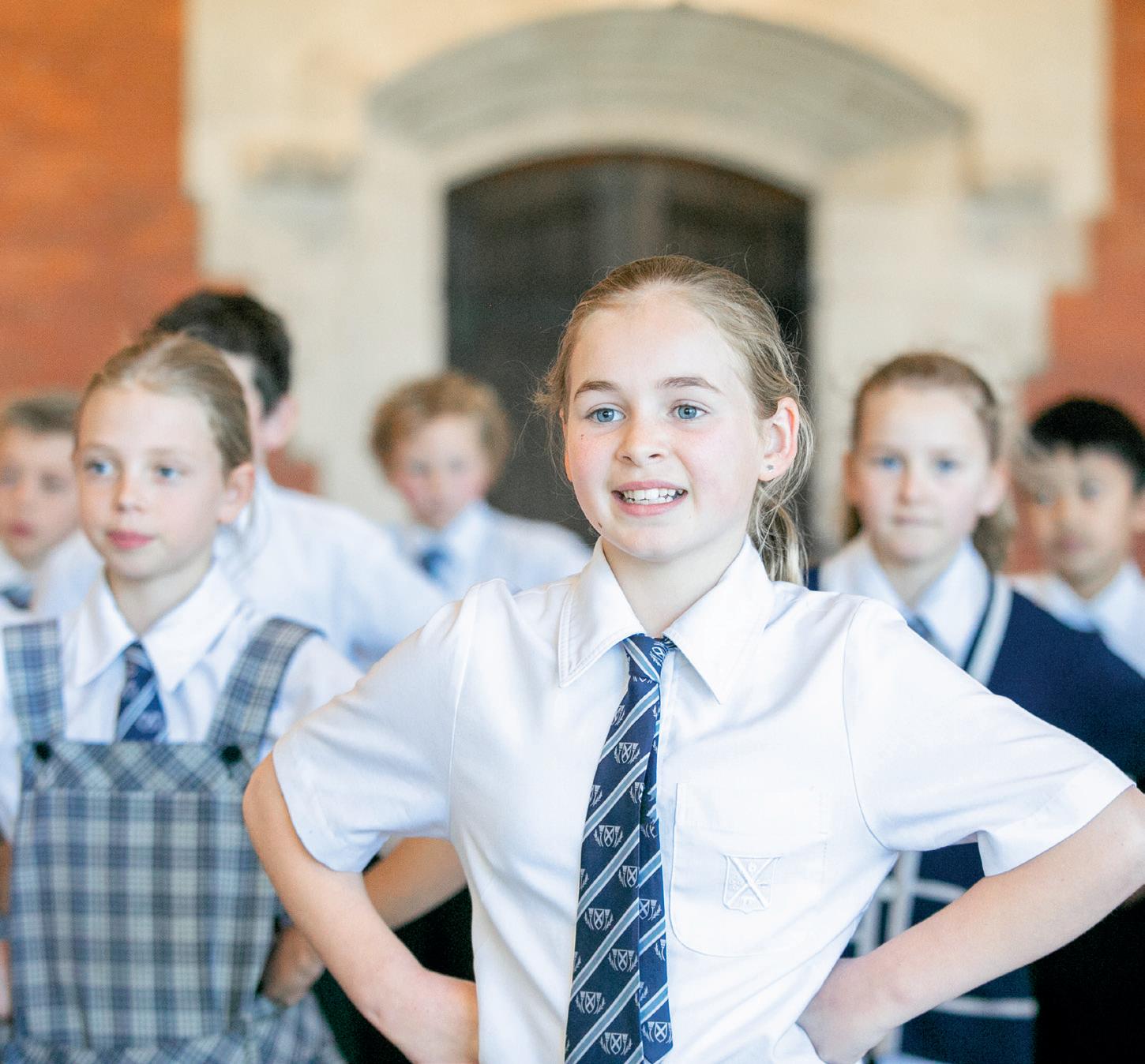
4 minute read
Middle Syndicate
In order to establish a strong foundation of mutual respect and positive relationships in our Middle Syndicate team, a core focus throughout 2019 was our Developing Positive Relationships (DPR) values of Faith, Hope, Compassion, Respect, Honesty, Generosity, and Responsibility. Our teaching team were committed to developing a shared understanding of the way we wanted our teachers and students to think and act in our school.
Manaakitanga At the beginning of the year our focus was ‘Identity’ (self, family, class, team, school, community, national and international). Students shared their family culture and identity through a range of discussions, multimedia platforms, learning experiences, and presentations. All students contributed to developing the class and team identity by running assemblies, team singing, weekly Growth Mindset Persistence Awards, sustainability projects, shared inquiries, friendship programmes at each year level, a Year 5–6 speech competition, and the introduction of Key Competency Awards.
e-Portfolios Seesaw was used as an effective platform to share learning at class, group, and individual level. Families connected to Seesaw to keep up to date with daily happenings and learning in the classroom. Extended family members also accessed the Seesaw app to have conversations about learning at St Andrew’s with their family members. Seesaw was also used effectively to send out reminders and messages to support families and ensure they were up to date.
Mathematics All Year 4–6 teachers undertook professional learning to integrate the newly introduced Prime Maths Interactive Suite. Year levels had Mathematics in the same
period each day to allow for cross year level groupings, that were fluid and meeting individual needs throughout the year. The shared assessment practices and reporting allowed teachers to communicate learning progress for all students throughout the year. The students used the Prime Maths practise book, a maths exercise book, and online links for learning and consolidating mathematical concepts.
Writing – Spelling The assessment practices in our spelling programmes were robust, extensive, and provided effective direction for the spelling focus for each student. In response to reviewing our spelling programme and effectiveness in Term 4, we will be implementing the ‘Spelling Matters’ resource for our Year 4–6 students in 2020. ‘Spelling Matters’ is a highly successful spelling series incorporating stimulating and proven activities to teach spelling skills and strategies.
Reading The Integration of Core 5 (Years 4–5) and Reading Plus (Year 6) into the classroom reading programme contributed to exceptional progress in vocabulary, fluency, and comprehension for Year 4–6 students. The RBL (Reading Between the Lines) textbooks were introduced from Year 4. This resource contains a broad and varied range of text types to engage students and facilitate reading skills and strategies at each student’s level.
Inquiry Questioning techniques and being able to verbalise the inquiry process were a focus during 2019. We believe developing questioning skills in our students promotes increased motivation, critical thinking skills, and links to prior learning. In 2020 we will further explore the classification of questions into lower and higher cognitive questions. Lower cognitive questions (fact, closed, direct, recall, and knowledge questions) involve the recall of information. Higher cognitive questions (open-ended, interpretive, evaluative, inquiry, inferential, and synthesis questions) involve the mental manipulation of information to produce or support an answer.
Sustainability The ‘Sustainability’ focus was facilitated by the Year 5 teachers and was integrated into classroom programmes. A school garden, a flourishing tunnel house, and a hydroponics unit were established in 2019. In 2020 developing connections with College Science students, and waste free initiatives will be priorities.
Te Reo Our Kapa Haka Group of over 100 students took part in the Tūhono Kapa Haka Festival in September. Our group was one of the largest kapa haka groups to perform. The group was awarded Best Uniform, second place for Waiata, Best Use of Traditional Instrument (with the inclusion a Year 5 student on the
bagpipes) and Tikanga. The Tikanga award was the award we were most proud of, as it strongly aligned with our DPR values. All teachers took part in Te Reo professional learning during Terms 1–3. The impact of this learning on the classroom programme was evident in all rooms and will continue to be a focus in 2020.
Self-Efficacy Through engaging classroom programmes, shared expectations, and acknowledgment of success our students have a deeper understanding of the meaning and importance of self-efficacy. In consultation with their teacher, students have set goals, been immersed in learning experiences, practised skills, completed assessment tasks, reflected on their learning, and made links to growth mindset habits.

Technology The integration of devices increased in all classrooms. In 2019 each year level had access to 16 laptops and several desktop computers. Devices were used to engage, enhance, and promote quality learning opportunities. The integration of Minecraft Education engaged learners and enabled them to share knowledge and understanding. Our Year 4 class were one of the first in the world to use an Antarctica server to recreate Antarctica and share their research. Our Year 6 students accessed the Ngā Motu (The Islands) server to share their learning about Māori language, culture, and people. For two terms each class in our team had a computer science focus using Flipbots. This was an engaging project and promoted computational thinking skills as we head into implementing the new Digital Technologies curriculum in 2020. OneDrive is now being used confidently and efficiently by all Year 4–6 teachers.
Junior/Middle Team Transition In Term 4, the Year 3–4 teachers developed a transition programme for our Year 3 students. We acknowledged moving from the junior block to the middle/ senior block is a significant event in their schooling. During the final six weeks of the school year the Year 3 students spent time with a Year 4 buddy reading, enjoying morning tea and lunch together, joining the Years 4–6 assembly, fitness, and becoming familiar with the new block that will become home for them in 2020.






